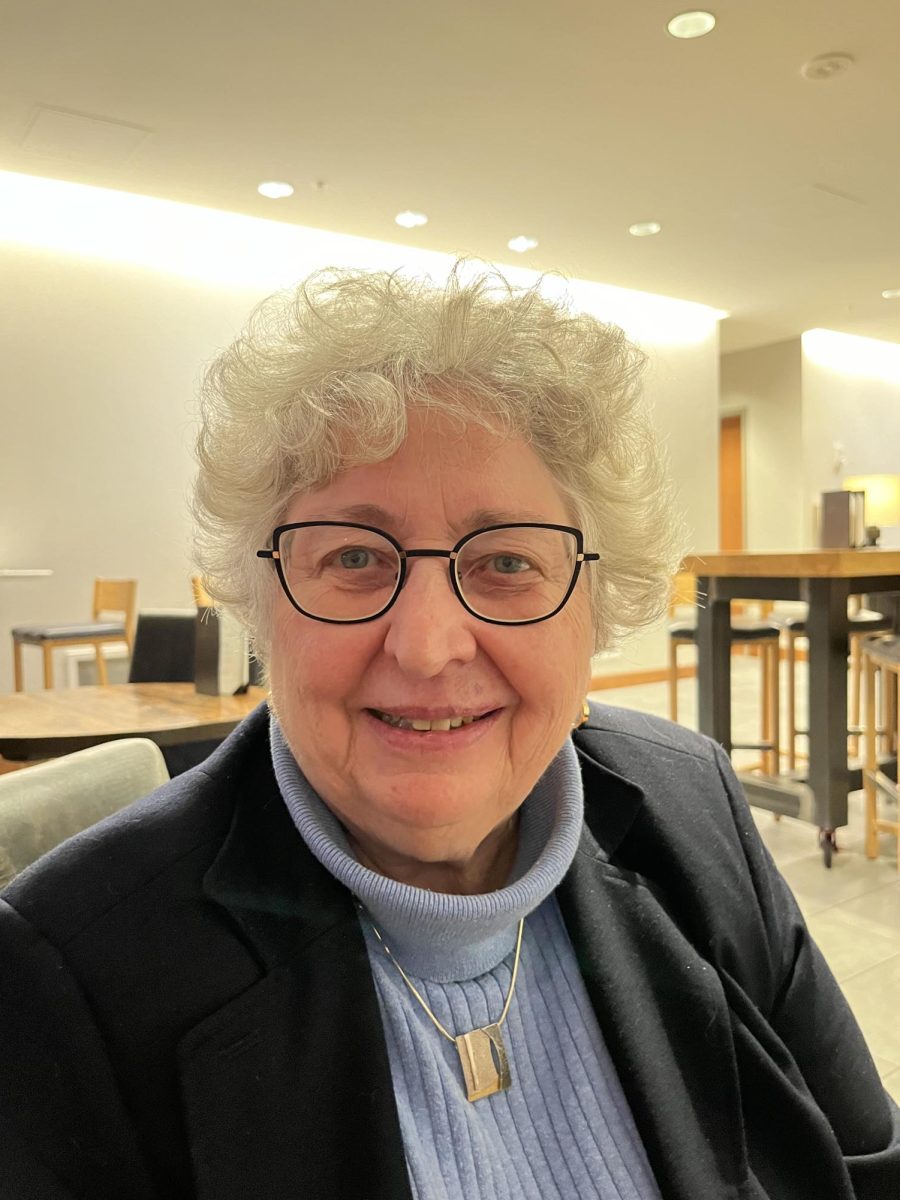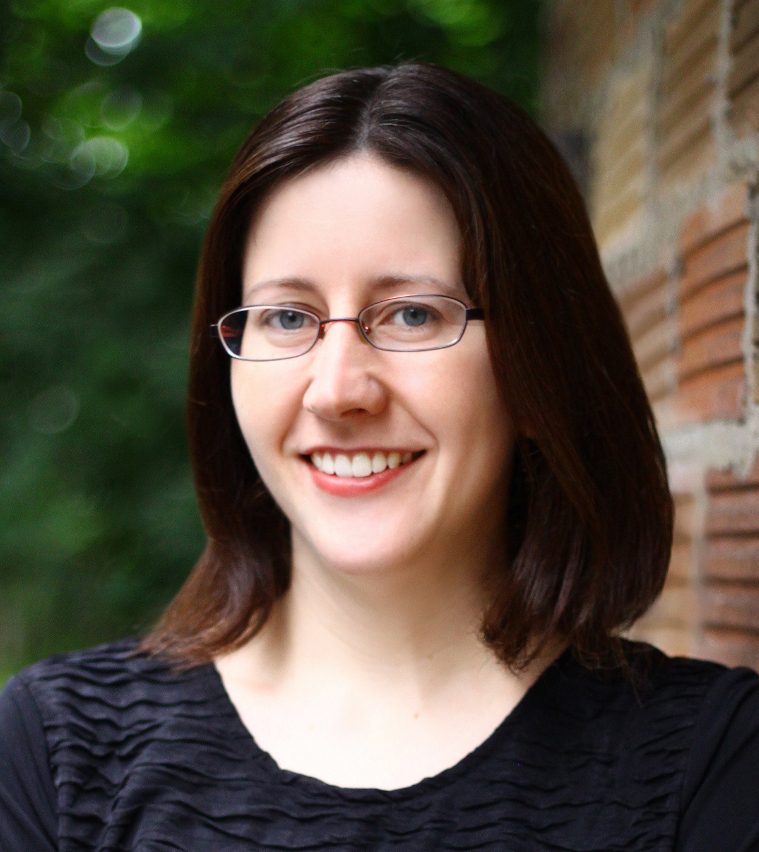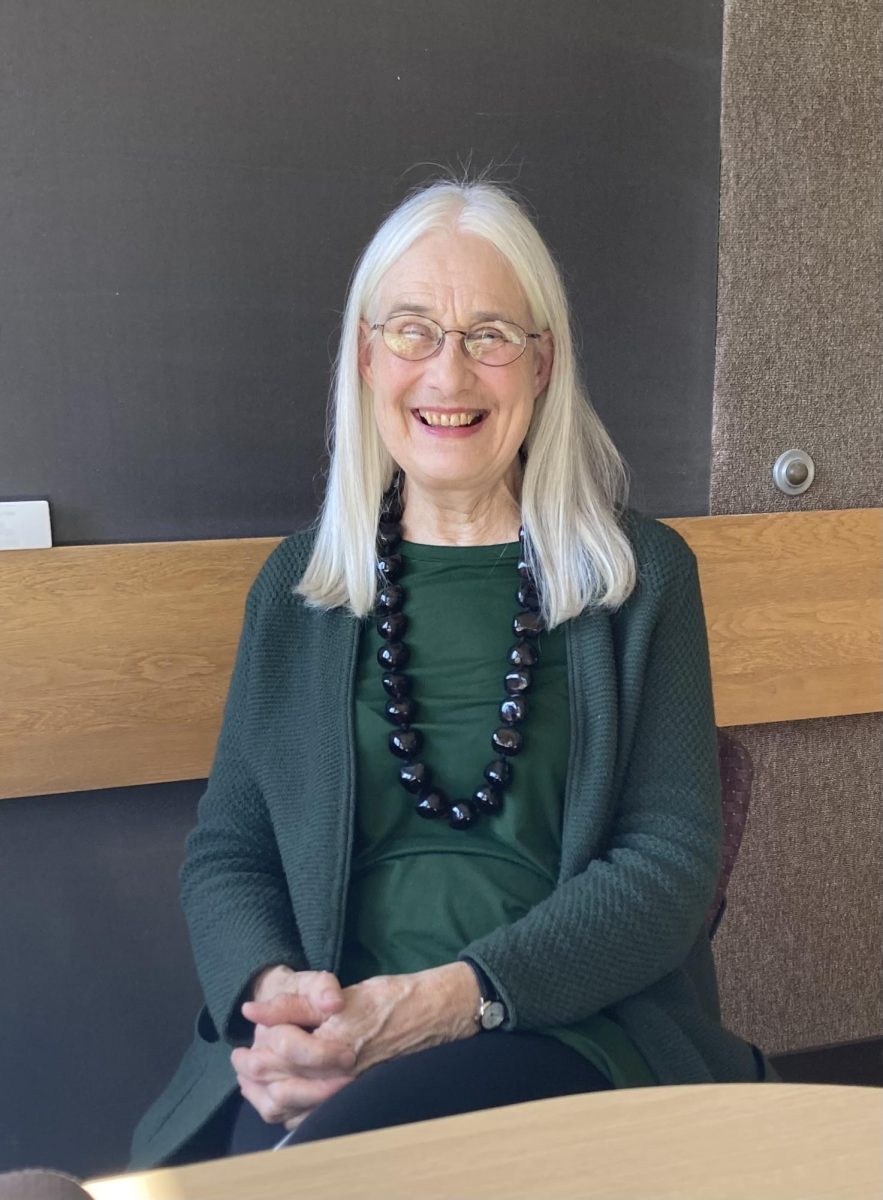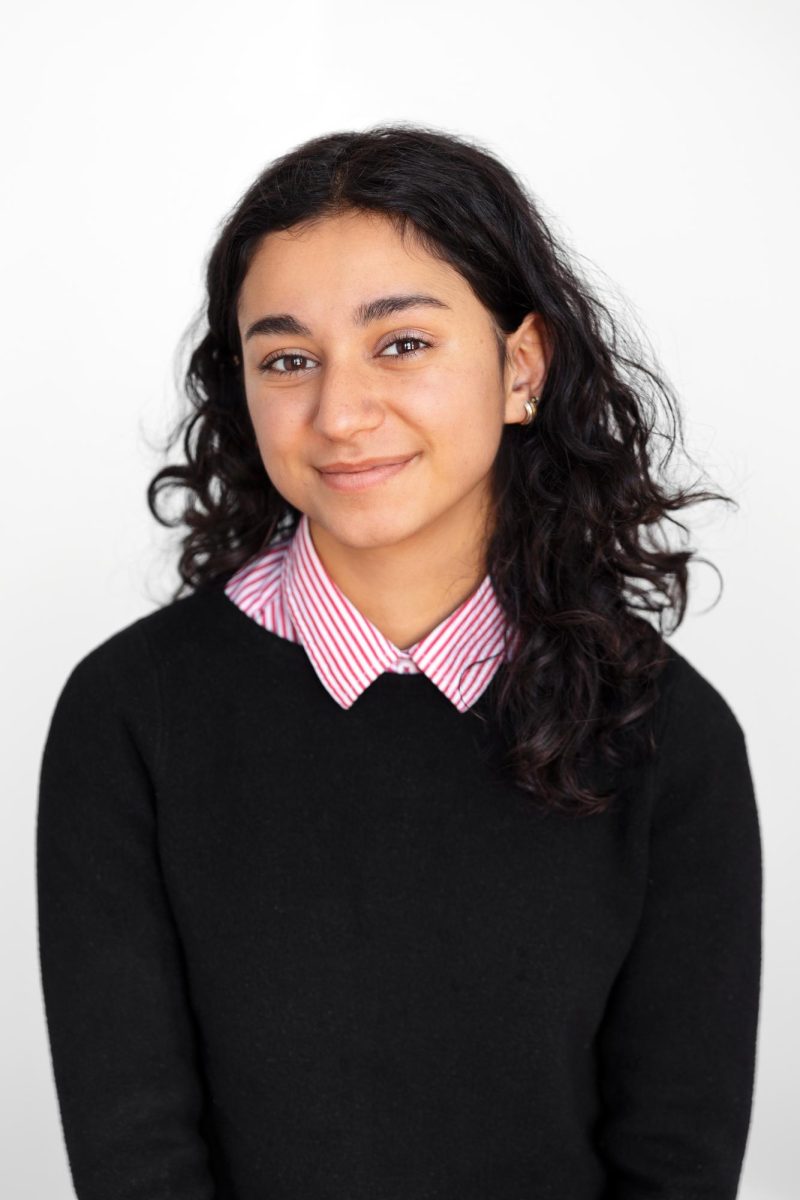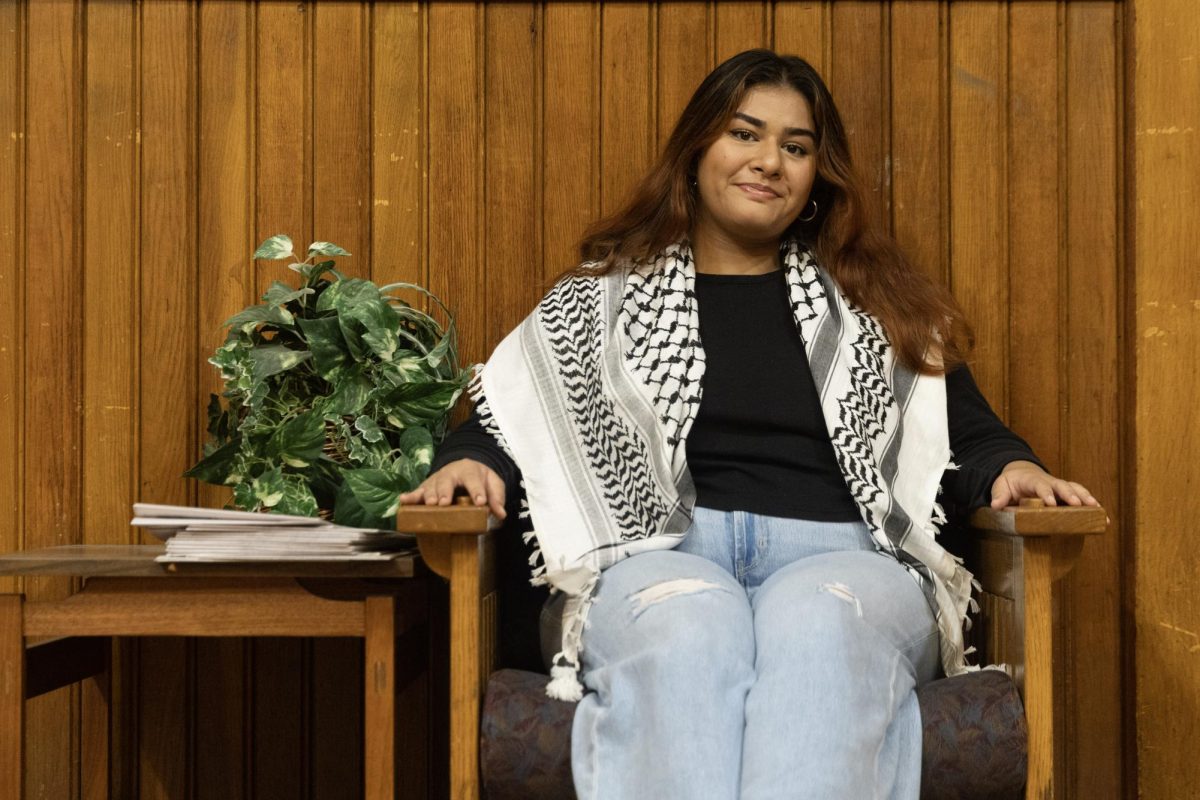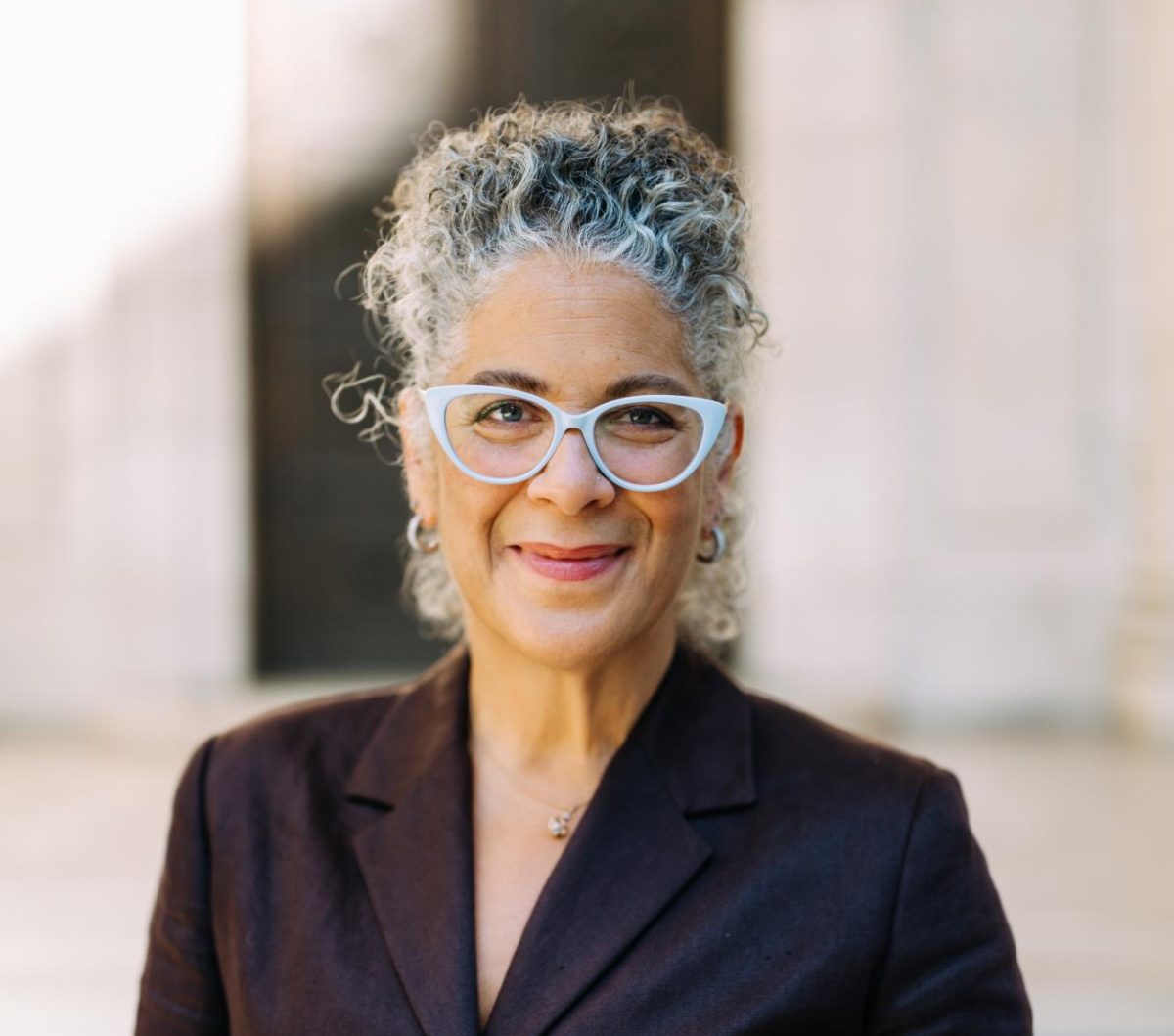Eve Sandberg is the Robert S. Danforth Professor of Politics. Her research centers on comparative democratization; economic development, including issues of entrepreneurship; political party systems; nongovernmental organizations; and gender studies. She managed a political consultancy company for 20 years and served two terms on Oberlin City Council. In the aftermath of the 2024 presidential election, she was a panelist at the immediate reaction and aftermath analysis panel.
This interview has been edited for length and clarity.
How has Oberlin’s participation in mainstream politics changed during your time at Oberlin?
There were no political clubs before I came in the 1990s. Much earlier in the ’50s and ’60s students at Oberlin had conventions every four years in which the two parties would nominate their candidates and take on that role. The invasion of Iraq got students really engaged with politics again. During the midterms in 2002, we had a group of students who decided they wanted to start an Oberlin College Democrats on campus. So they did, and the word got out. That meant a couple of the Republicans on campus and the Libertarians on campus got together and formed an alternative group.
The Democratic students held a convention in 2004 for the candidates, and they asked different faculty members to play the roles of the different candidates that were running in the primary. So the President played Dennis Kucinich, I played Carol Mosley Braun, other people played other candidates and made the appeal. And then the students on campus would vote. Braun sent in a video and it was very compelling about what Washington should be doing and wasn’t doing and what she would change as a Black woman running for president and a lot of students voted for her. Braun did not have a chance of getting the nomination, and the student club was afraid that someone would pick up on the newswire and write that Oberlin College had voted for her for their candidate, rather than John Kerry, who was about to contest with George W. Bush. So they kind of had a pause for a minute to run around and educate everyone that this could be a statement. Then the convention decided, they would vote and they would elect John Kerry even though their first vote, which was a straw vote, hadn’t turned out that way.
Later, people would be pretty united behind Barack Obama. When Obama won the presidency, much of the campus went onto Tappan Square, and they were dancing and partying all night long. You could hear it all over Oberlin. It was so loud. It was an extraordinary moment. Students were super excited to have someone who was younger and different entering the White House.
Oberlin Democrats often do not survive every four years because members choose to support different candidates during the primaries and so there’s no unity in the organization, and they’re out busy working for their candidates rather than for the organization. So there are organizations on campus that have sprung up that simply say, “we have to get people to register to vote,” and those have predominated. And particularly when president Trump was running against Hillary Clinton, the split between Bernie Sanders and Hillary Clinton was a very hard split.
There were those students who had supported Bernie Sanders and came over to Hillary Clinton, but they were few. We had some dorms that took a pledge that they would not vote for Hillary because the nomination didn’t go to Bernie Sanders and they’d rather see Trump than Hillary as president. So the OC Dems had a brief life. It went from about 2002 until the Clinton–Sanders campaigns.
Can you talk about ways you’ve seen students get involved with campaigns outside of Oberlin?
There is a program started in 1994 by alumni Dick and Dorothy Cole, OC ’56, who gave the politics department money to encourage students to get involved in politics and run for office — stop joining either protest movements or NGOs and trying to persuade the decision makers to do things, and become the decision makers, stick your neck out, run, learn how to do it. And so the Cole Scholars Program, which is housed in the politics department, began. It’s an academic program in which students study in the spring about elections and electoral politics in the United States.
They have field work in the summer in which they’re placed on any level campaign that’s totally paid for eight weeks, including housing, food, their transportation to that place. They come back in the fall and they write a term paper using their field work in the fall. The other thing that the department of Politics has been doing since before I came was placing students during Winter Term on Capitol Hill. That’s where you can see that we have such a wide range of students and their views.
Another thing that’s happened in the backdrop is that working on campaigns has become a much bigger thing. When we first started the Cole Scholars program in 1994, few people volunteered on campaigns. So we would call up and they would say, “Oh my goodness, somebody’s going to do field work here from nine to five every day?” For us it’s field work, but for them, it looked like they were getting extra hands. We would say, they’re writing their paper on finance, so they have to work in finance. They’re writing their paper on communication, so they work in communication. It was very easy to place them. It is very difficult now to place them, because campaigns have become an alternative career path for many students who want to be involved in electoral politics.
The Cole program has graduated people who can have continued in various things to be active in politics over the years. In the spring, there’s going to be a celebration of the Cole program that was started in 1994, because this is 2024 to 2025. In spring we’re having a celebration because it’s been a couple of decades. We’ll be bringing back some of those alums who are working now as lawyers for campaigns, as elected officials, some of them have worked on Capitol Hill, some of them have worked in speech writing, Some of them have worked in communications and finance and a whole range of things. So that’ll happen this spring to commemorate the Cole program.
Can you talk about the general importance and significance of this election?
If we accept that what’s said during the campaign is actually what’s going to happen when President Trump comes into office and governs, this election means that we’re going to see a change in the international system and to what extent the U.S. supports the international system. That breaks with the norms of how this country has behaved, at least since World War II. There will be a change in the way in which this country operates toward its allies and toward its enemies that is significantly different and toward international institutions especially, which is what’s called the liberal international order. There will be a change in the norms by which we conduct our foreign affairs.
Traditionally we have an active state department with people who have knowledge and experience in various areas of the world and they prepare background briefings and they prepare position papers. President Trump will not be relying on the State Department. He distrusts them. He’ll probably be cutting their budget. He has previously adopted, but now will expand his approach to foreign affairs as being one of a transactional president who is doing a business deal. Foreign policy will be done more out of the West Wing and from the president’s office than it will from the State Department.


